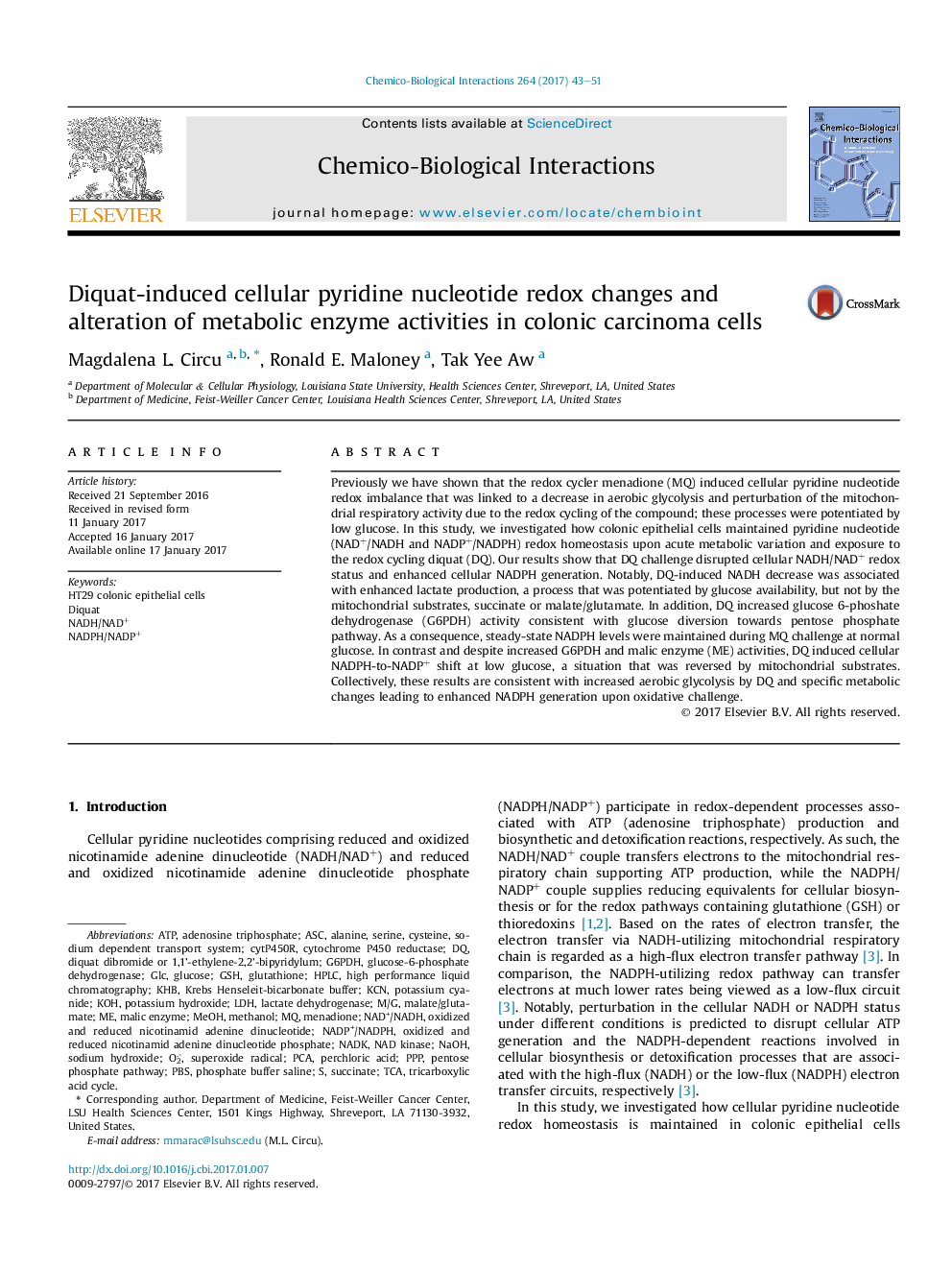| Article ID | Journal | Published Year | Pages | File Type |
|---|---|---|---|---|
| 5559443 | Chemico-Biological Interactions | 2017 | 9 Pages |
â¢Redox cycler diquat, DQ, exacerbates cellular pyridine nucleotide loss in colonic carcinoma cells.â¢At low glucose, mitochondrial substrates prevent pyridine nucleotide redox imbalance.â¢DQ promotes pyruvate-to-lactate production and enhances aerobic glycolysis.â¢DQ redox cycling stimulates cellular NADPH generation via pentose phosphate pathway and malate catabolism.â¢Colonic carcinoma cells employ metabolic alterations to alleviate oxidative stress.
Previously we have shown that the redox cycler menadione (MQ) induced cellular pyridine nucleotide redox imbalance that was linked to a decrease in aerobic glycolysis and perturbation of the mitochondrial respiratory activity due to the redox cycling of the compound; these processes were potentiated by low glucose. In this study, we investigated how colonic epithelial cells maintained pyridine nucleotide (NAD+/NADH and NADP+/NADPH) redox homeostasis upon acute metabolic variation and exposure to the redox cycling diquat (DQ). Our results show that DQ challenge disrupted cellular NADH/NAD+ redox status and enhanced cellular NADPH generation. Notably, DQ-induced NADH decrease was associated with enhanced lactate production, a process that was potentiated by glucose availability, but not by the mitochondrial substrates, succinate or malate/glutamate. In addition, DQ increased glucose 6-phoshate dehydrogenase (G6PDH) activity consistent with glucose diversion towards pentose phosphate pathway. As a consequence, steady-state NADPH levels were maintained during MQ challenge at normal glucose. In contrast and despite increased G6PDH and malic enzyme (ME) activities, DQ induced cellular NADPH-to-NADP+ shift at low glucose, a situation that was reversed by mitochondrial substrates. Collectively, these results are consistent with increased aerobic glycolysis by DQ and specific metabolic changes leading to enhanced NADPH generation upon oxidative challenge.
